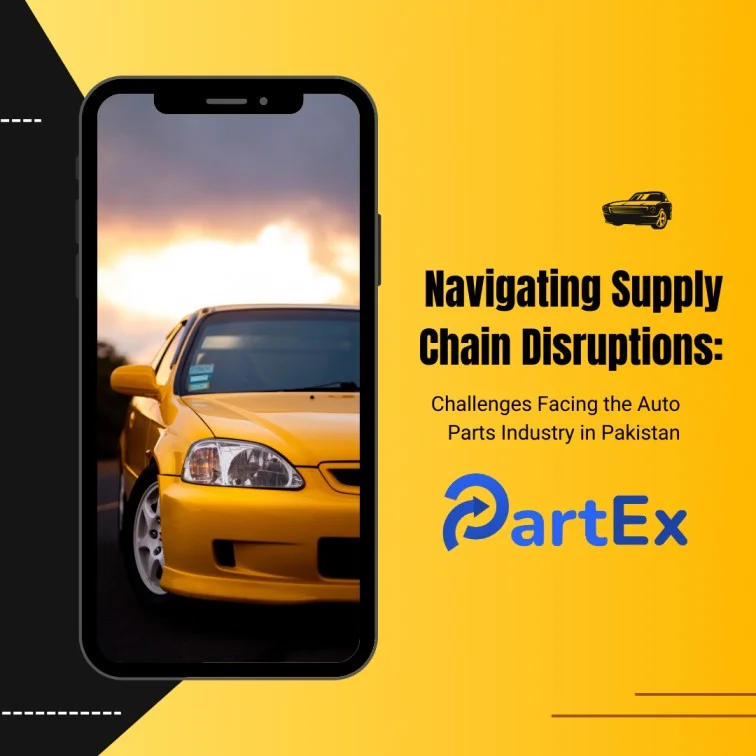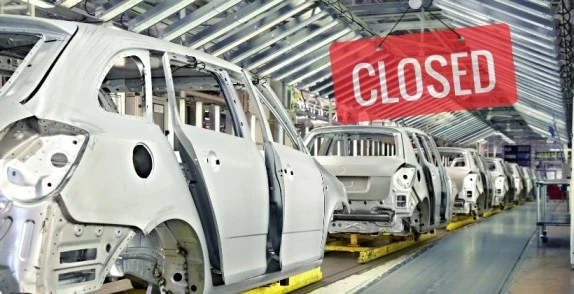Blog
Navigating Supply Chain Disruptions: Challenges Facing the Auto Parts Industry in Pakistan

In 2024, the auto industry in Pakistan finds itself navigating through turbulent waters marked by political instability, frequent closures of production lines by major companies like Suzuki and Toyota, and the imposition of new taxes on the sector. These challenges have collectively cast a shadow over the stability of the auto sector, significantly disrupting the supply chain and causing shortages of critical auto parts.
Understanding the Impact of Political Instability and Production Closures
Political instability in Pakistan has long been a significant factor affecting various industries, including the auto sector. Uncertainty surrounding government policies, regulatory frameworks, and political tensions can disrupt business operations, investment decisions, and overall market confidence. In the case of the auto industry, political instability often leads to fluctuations in demand, production disruptions, and supply chain challenges.
The frequent closure of production lines by major automotive companies such as Suzuki and Toyota exacerbates the situation. These closures, which stem from various factors including labor disputes, supply chain issues, and economic challenges, disrupt the flow of production and create bottlenecks in the supply chain. As a result, the availability of essential auto parts becomes constrained, leading to delays in vehicle manufacturing and maintenance.

Impact of Closed LCs and Taxation Policies on Auto Parts Availability
The closure of Letters of Credit (LCs), a common financial instrument used in international trade transactions, further exacerbates the challenges faced by the auto parts industry in Pakistan. Closed LCs restrict access to foreign currency and impede the importation of essential raw materials and components required for manufacturing auto parts. As a result, local manufacturers and assemblers face difficulties in sourcing quality materials, leading to production delays and quality issues.
Moreover, the implementation of new taxes on the auto sector adds another layer of complexity to the supply chain dynamics. Increased taxation raises production costs, reduces profit margins, and ultimately impacts the affordability of vehicles and auto parts for consumers. The burden of these taxes trickles down the supply chain, affecting suppliers, manufacturers, and ultimately, end-users.

Navigating Through Supply Chain Disruptions: Strategies for Resilience
In the face of these challenges, stakeholders in the Pakistani auto parts industry must adopt strategic measures to enhance resilience and mitigate the impact of supply chain disruptions:
Diversification of Suppliers
Explore alternative sources of auto parts and raw materials domestically and internationally to reduce reliance on a single supplier or market.
Investment in Local Manufacturing
Encourage investment in local manufacturing capabilities for auto parts to reduce dependency on imports and mitigate the effects of closed LCs and currency fluctuations.
Engagement with Government and Regulatory Authorities
Advocate for policies that promote stability, transparency, and investment in the auto sector, addressing concerns related to taxation, trade regulations, and political stability.
Enhanced Collaboration and Communication
Foster closer collaboration and communication among stakeholders across the supply chain, including manufacturers, suppliers, distributors, and regulatory bodies, to address challenges collectively and streamline operations.
Investment in Technology and Innovation
Embrace technological advancements and innovation in manufacturing processes, logistics, and inventory management to improve efficiency, reduce costs, and enhance agility in responding to market dynamics.
Conclusion
The auto parts industry in Pakistan faces formidable challenges stemming from political instability, production closures, closed LCs, and taxation policies. These challenges have disrupted the supply chain, causing shortages of auto parts and impacting the overall resilience of the sector. However, by adopting proactive strategies, fostering collaboration, and embracing innovation, stakeholders can navigate through these turbulent times and build a more resilient and sustainable auto parts industry in Pakistan.

 Suzuki
Suzuki Honda
Honda Toyota
Toyota